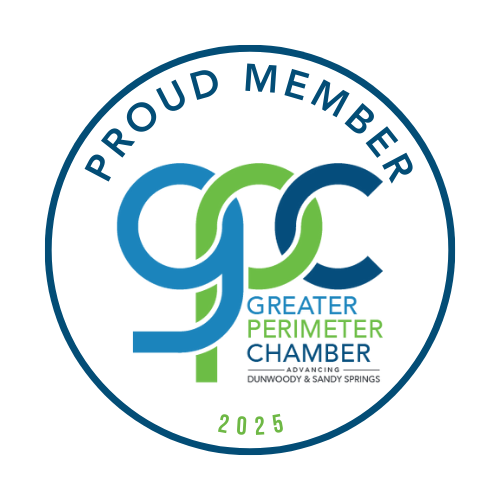- Our Dual Diagnosis Program
Depression Counseling in Atlanta
An Introduction to Depression
Many people who struggle with depression wonder if, eventually, their symptoms will resolve on their own. It is not uncommon for people to wonder if there is a way to “cure” depression and its associated symptoms without seeking mental health treatment. The idea of seeking mental health treatment comes with fears, stigma, and concerns about being “medicated” or seen as different from peers and members of one’s social circle.
Although time can indeed reduce the impacts of some life events, it does not heal nor cure depression. Depression brings about feelings of hopelessness and sometimes helplessness that are significant enough to impact every aspect of a person’s life, including relationships, school, and work. Unfortunately, these symptoms and emotions cannot be willed to stop, and no amount of time will make them “go away” on their own.
Depression or major depressive disorder is a mood disorder. Although many people experience occasional moments of feeling down or a briefcase of “the blues,” the alterations in mood experienced by someone with depression go far beyond merely feeling “down.” The severity of depressive episodes and the frequency with which symptoms occur will vary throughout one’s life. Major depressive disorder is a highly recurring illness, with as many as half of those who experience one depressive episode having one or more additional episodes throughout their lifetime. Also, current research indicates each subsequent episode further increases the risk for ongoing future episodes. For example, an individual who has had two episodes is seventy percent more likely to experience further episodes—that number increases to ninety percent after the third episode.
Your Recovery is Our Priority
Atlanta Recovery Place has caring representatives available 24/7 to help you or your loved one when dealing with substance abuse. Request a 100% confidential callback now to start your journey.
When to Get Help for Depression
Everyone experiences situations or events that result in negative emotions. Each day, thousands of people struggle with feeling down, upset, or sad. In the overwhelming majority of these cases, painful emotions often subside after a few days. For someone with depression, this is not the case. Depression is an illness characterized by depressive episodes, similar to a “flare” in someone who struggles with an inflammatory disease. An episode is when an individual has symptoms associated with depression for a minimum of two weeks. The length of each episode may vary.
In some cases, episodes may last for two weeks and then begin to ease. In other cases, they can last for much longer. If left untreated, the depressive symptoms can get progressively worse and lead to significant impairment and, in some instances, self-harm or suicide.
Someone who struggles with depression may experience periods of partial or even total remission. During remission periods, symptoms may disappear or be significantly reduced. Depression and depressive episodes are characterized by various emotional and behavioral changes. If you or a loved one experiences any of the below, it may be time to consider seeking help for depression.
How Depression Treatment Centers in Atlanta, GA Help
What to Expect in Depression Clinics in Georgia
A comprehensive depression treatment plan combines various treatments. The most effective programs include psychotherapy, medication, and supportive care. Depending on your needs, depression symptoms are often treated with a variety of antidepressants. It may take time to determine the best option for you as sometimes what works for one person does not work well (or at all) for another. Occasionally medical and mental health providers may use a combination of pharmaceutical treatments depending on your symptoms. While medications can help reduce the intensity and severity of symptoms, they are not a cure for depression.
Antidepressants are only beneficial in correcting the underlying chemical imbalance. For treatment to be successful, evidence-based therapies are an essential part of a treatment plan.
Psychotherapy is a broad term for one of several forms of talk therapy which could be used as part of a therapeutic treatment program. There are different kinds of talk therapy, including dialectical behavior therapy (DBT) and cognitive-behavioral therapy (CBT). Therapy can help you identify and examine triggers that cause feelings of depression. Once you better understand your triggers, it is possible to create new and positive beliefs, learn and practice new coping strategies for adverse events and feelings and identify detrimental beliefs that you hold, which further episodes of depression.
Your therapy provider at our outpatient rehab in Georgia may also suggest various lifestyle changes to help you manage symptoms and reduce the potential for relapse after treatment. It is important to continue to follow your provider’s treatment and aftercare plan. This may include participating in regular therapy sessions, group therapy, medication, and other self-care techniques. It is also important to maintain regular sleeping habits and eat a healthy, balanced diet. Finally, obtaining drugs or alcohol is beneficial. Alcohol and various recreational drugs can have adverse interactions with prescription medications resulting in dangerous and potentially life-threatening complications.
What We Offer
Real Experiences, Real Results
Amazing Resource
Feels More Like Home
ARP is an amazing program who’s staff really care about their people! It feels more like a home then a treatment center. And the connections and people I’ve met there are connections I’ll have for the rest of my life.
"Feels More Like Home" Dustin S.Love this place and what they do for the community. Such a positive aspect of the recovery world at large. Thank you for doing all that you do, and your continued support to those in need.
"Love This Place" Paige D.Love This Place
Working with a diverse network of partners
We Work With Most Major Insurance Providers
Most major health insurance providers with out-of-network benefits will help cover the cost of our Atlanta treatment program. Call us or email us to find out your coverage options when seeking treatment for drug & alcohol abuse.





ARP's Depression Counseling in Atlanta Can Help You
Depression is a serious illness. It is far more impactful than having the blues or a down day. If you live with depression, depressive episodes are recurrent and often increase in their intensity as time passes. There are a wide variety of treatment options that are beneficial in treating and reducing the intensity of depression symptoms. Depression counseling in Atlanta can help you learn and practice healthy, safe ways to manage triggers and challenges associated with depressive episodes. Also, depression treatment provides a means to reduce the risk of recurrence or the severity of an episode.
At our intensive outpatient program in Atlanta, we will help you develop the tools you need to cope with and adapt to your depressive episodes, reducing their impact on your day-to-day life. Depression is indeed a chronic condition, and it will not go away on its own, but your depressive symptoms can be manageable with the appropriate treatment. You or a loved one are struggling with depressive episodes, contact us at our drug rehab in Georgia today.
Recover Now.
Atlanta Recovery Place has caring representatives available 24/7 to help you or your loved one when dealing with substance abuse. Request a 100% confidential callback now to start your journey.
What We Offer
Quick Links
Our Contact
- 1-866-433-9220
- info@atlantarecoveryplace.com
-
1742 Mt Vernon Rd #100
Dunwoody, GA 30338 -
Monday – Friday: 8 am – 6 pm
Saturday: 8 am – 3 pm (as needed)
© 2025 Atlanta Recovery Place All rights reserved.

Verify Your Insurance & Get Access To Treatment
You can get insurance coverage in as little as 5 minutes!






ARP is a really amazing resource in getting sober. I’ve had many close people in my life go through ARP and thrive after they finish the program there. The staff there is very friendly and goes above and beyond in helping their clients.
" Amazing Resource" Gracey O.